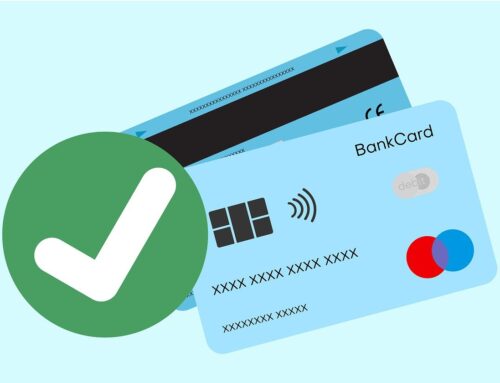
Owning a Business in the Philippines: Practical vs. Actual Ownership for a Foreigner
The Philippines, with its vibrant economy and entrepreneurial spirit, draws foreign investors from all over the world. But for many, the country’s foreign ownership laws can feel like a roadblock. Here’s the good news: owning the key assets that drive your business gives you real control — even when full ownership isn’t possible.
Let’s break down how you can use asset control to steer your business toward success.
The Challenge: Navigating Foreign Ownership Rules in the Philippines
While the Philippines actively welcomes foreign investment, it protects certain industries through ownership limitations. If you’re serving the domestic market, you’ll likely encounter the 60/40 rule, requiring at least 60% Filipino ownership of your business.
At first glance, this can seem like a dead end. You have the perfect business idea, a solid strategy, and you’re ready to launch — only to realize you can’t hold full ownership.
But don’t worry — this hurdle isn’t the end of the road. By using strategic asset ownership, you can still maintain strong control over how your business operates and grows.
More Than Just the 60/40 Rule: Understanding the FINL
The Foreign Investment Negative List (FINL) outlines industries where foreign ownership is restricted or prohibited, particularly in sectors tied to national security, culture, or public health.
Knowing whether your industry falls under the FINL is critical when planning your investment. If your business isn’t restricted by the FINL, asset control becomes an even more powerful strategy for operating successfully in the Philippines.
The Solution: How Asset Ownership Gives You Control
Even if you can’t legally own 100% of the company, you can own the assets that are essential to your business operations. Here’s how asset ownership empowers you:
-
You control the tools, not just the people.
-
You define the workflows, standards, and outcomes.
-
You protect your intellectual property and technology.
Owning key assets gives you real influence over how the business runs day-to-day, how it grows, and how it serves customers — even within a Filipino-majority ownership structure.
Real-World Examples: Asset Control in Action
Here’s how foreign businesses successfully use asset control to thrive in the Philippines:
The Software Development Powerhouse
You run a custom software company based in the US. You tap into the Philippines’ talented pool of developers to scale up your projects.
-
Servers and Software Licenses: You own and control the servers where the software is built and deployed.
-
Security Systems: You set the cybersecurity standards and manage access controls.
-
Development Tools: You own the code libraries, project management tools, and deployment platforms.
Result:
Even though the Filipino team writes the code, you fully control the infrastructure, the work process, and the final product.
The BPO (Call Center) Leader
You manage a customer service company in the US and expand operations by setting up a Philippine call center.
-
Call Center Software: You own the customer management and call routing software.
-
Phone Systems: You own the communication hardware and control call quality standards.
-
Training Materials: You own all service scripts, customer handling procedures, and quality assurance guidelines.
Result:
Filipino agents deliver the service, but you control how they deliver it — ensuring your brand standards, service quality, and customer experience are protected.
The Big Picture: Why Asset Control Works
When you control the critical assets — infrastructure, systems, intellectual property — you shape:
-
The daily operations
-
The long-term strategy
-
The customer experience
-
The overall business value
You retain real power over your company’s future without needing to break Philippine ownership rules.
Controlling the Space: How Leases Help Foreign Investors in the Philippines
Foreign investors in the Philippines face ownership limits, but creative strategies offer real control over business operations. One of the most powerful and flexible tools is strategic lease agreements. Even if you do not own the building, a well-structured lease gives you significant influence over your space — and ultimately, your business success.
Here’s how using a standard lease can give you the edge:
Locking In Stability: The Power of Long-Term Leases
A long-term lease with renewal options gives your business the stability it needs to thrive:
-
Confident Investment: Knowing you have secure premises for years allows you to invest confidently in equipment, branding, and staff development.
-
Customer Loyalty: Staying in one location helps build customer trust and repeat business — crucial for restaurants, shops, and service businesses.
Remember:
A long-term lease creates the foundation for growth, customer retention, and operational stability.
Shaping Your Space: Leasehold Improvements
Negotiate the right to make improvements to your leased space. This can include:
-
Brand Customization: You control the look and feel with design elements like paint, furniture, lighting, and signage — bringing your brand to life.
-
Functional Upgrades: Install essential fixtures like security cameras, custom workspaces, or specialized lighting that improve operations.
While you may not own the building, you can own the improvements inside — allowing you to tailor the space exactly to your business needs.
Optimizing Your Lease: Clauses That Matter
Beyond the basic terms, consider negotiating extras that give you even more control:
-
Maintenance Responsibility: Define who handles minor repairs to avoid unnecessary delays and maintain smooth operations.
-
Early Termination Clause: Build in flexibility to exit the lease under specific conditions — an important safeguard if your business needs change.
Strategically crafting your lease ensures that you’re not just renting space — you’re controlling it.
Owning the Assets That Drive Your Business: Real-World Control Examples
Beyond leasing, owning the key assets behind your business operations gives you even greater practical control. Here’s how different industries use asset ownership to lead and succeed:
The Delivery Powerhouse: Owning the Fleet
Running a delivery company?
Owning your vans, motorcycles, or trucks means:
-
Route Control: Set your delivery schedules and priorities.
-
Cost Savings: Avoid rental fees and rising transportation costs.
-
Brand Identity: Customize your fleet with your branding, boosting visibility and trust.
The Manufacturing Maestro: Owning the Machines
Manufacturing products in the Philippines?
Owning your production equipment allows you to:
-
Control Quality: Set production standards and maintain equipment reliability.
-
Ensure Efficiency: Avoid delays that come from renting or outsourcing machinery.
-
Protect Intellectual Property: Keep your designs and processes safe in-house.
The Construction Captain: Owning the Heavy Equipment
Leading construction projects?
Owning your cranes, bulldozers, and backhoes gives you:
-
Project Control: Manage your timelines without waiting on outside rentals.
-
Quality Work: Rely on well-maintained equipment for higher construction standards.
-
Cost Efficiency: Save long-term by avoiding expensive rental fees.
The Equipment Rental King: Owning Your Inventory
Operating an equipment rental business?
Owning your inventory enables you to:
-
Respond Quickly to Market Needs: Expand into high-demand equipment categories.
-
Set Competitive Pricing: Control your profit margins without external pressure.
-
Build Customer Loyalty: Provide reliable equipment and great service.
Owning your stock gives you control of your supply, your pricing, and your customer relationships.
The Website: Your Digital Powerhouse
In today’s world, a website is one of the most valuable business assets you can own — and foreign ownership of websites is unrestricted.
Your website allows you to:
-
Reach Customers Directly: In the Philippines and internationally.
-
Build and Protect Your Brand: Showcase your services and communicate your values.
-
Drive Sales 24/7: Convert visitors into leads and customers at all hours.
A strong website puts you in the driver’s seat, reaching new markets and building your business beyond traditional ownership limitations.
Final Thoughts: Own What Matters Most
Even with restrictions on full business ownership, smart foreign investors in the Philippines know how to build control where it counts:
-
Control the space with leases.
-
Control the business operations through asset ownership.
-
Control the customer experience through your website and systems.
With the right strategy, the Philippines offers not just opportunity — it offers the foundation for real, lasting success.

















